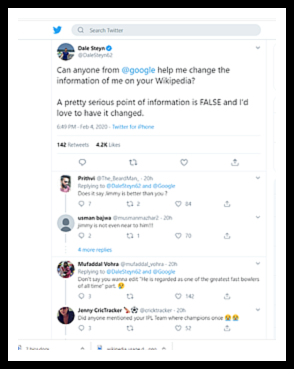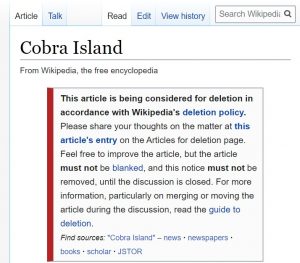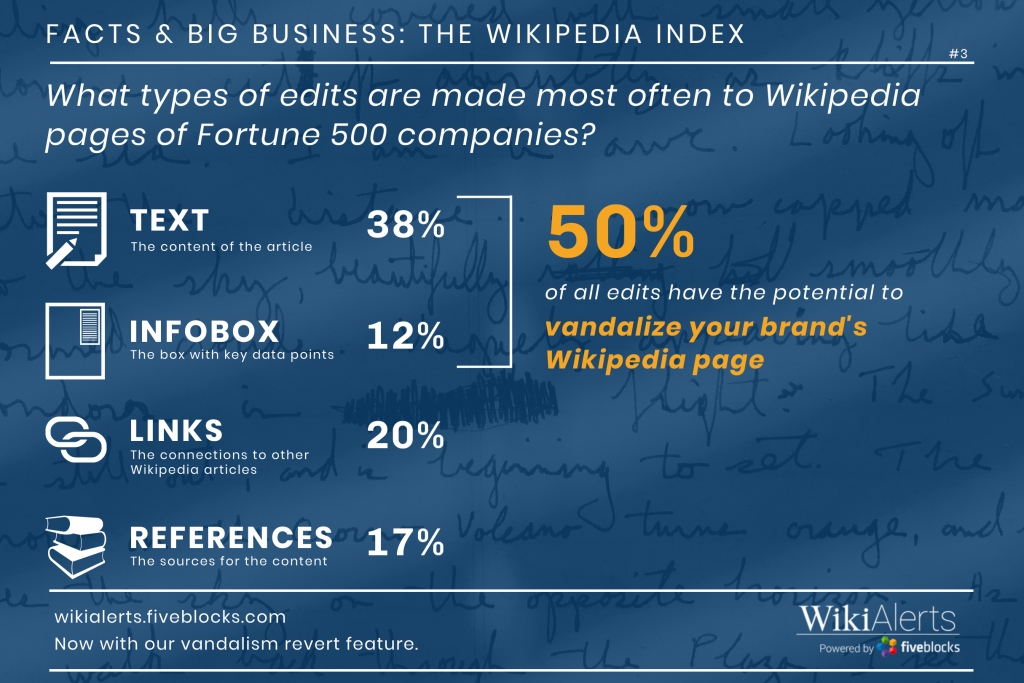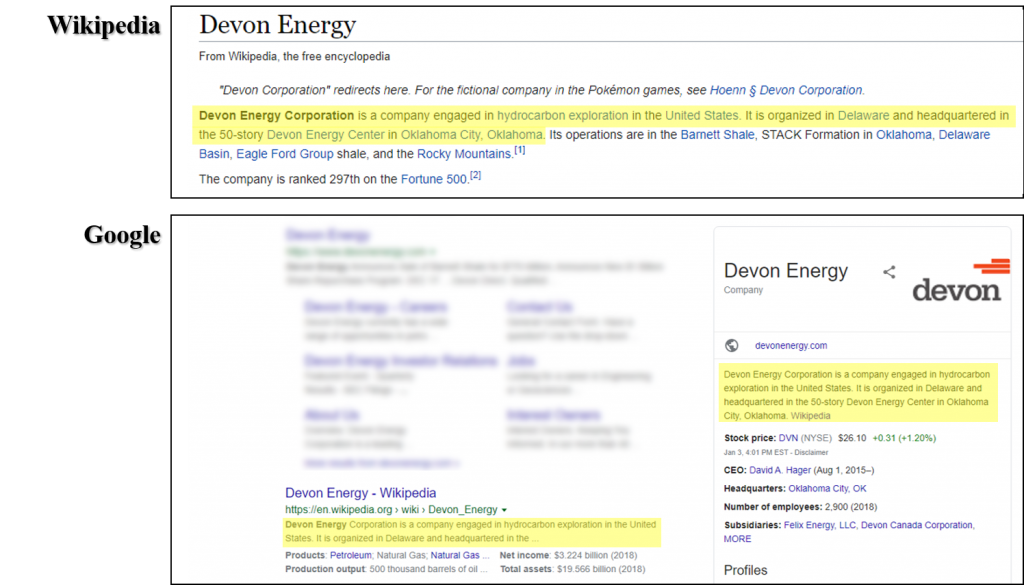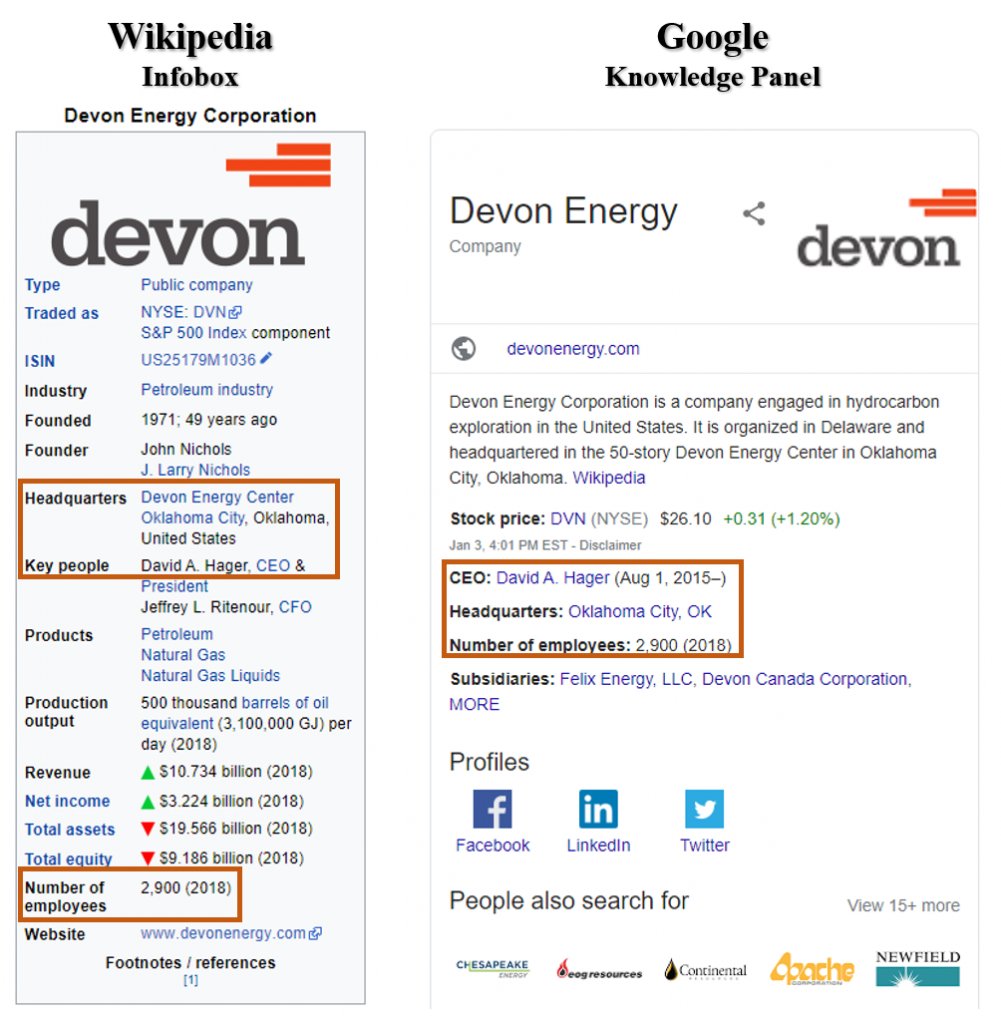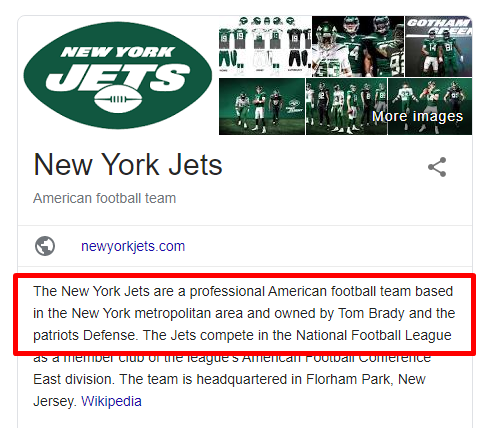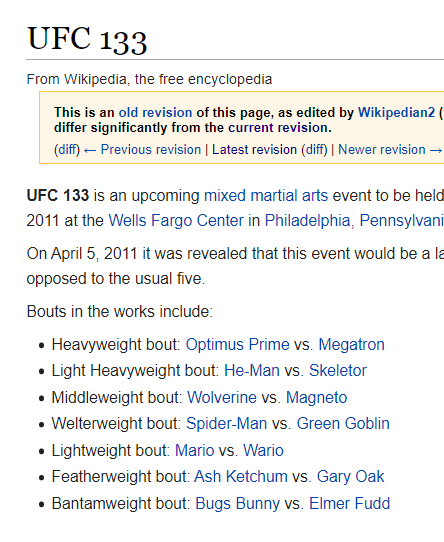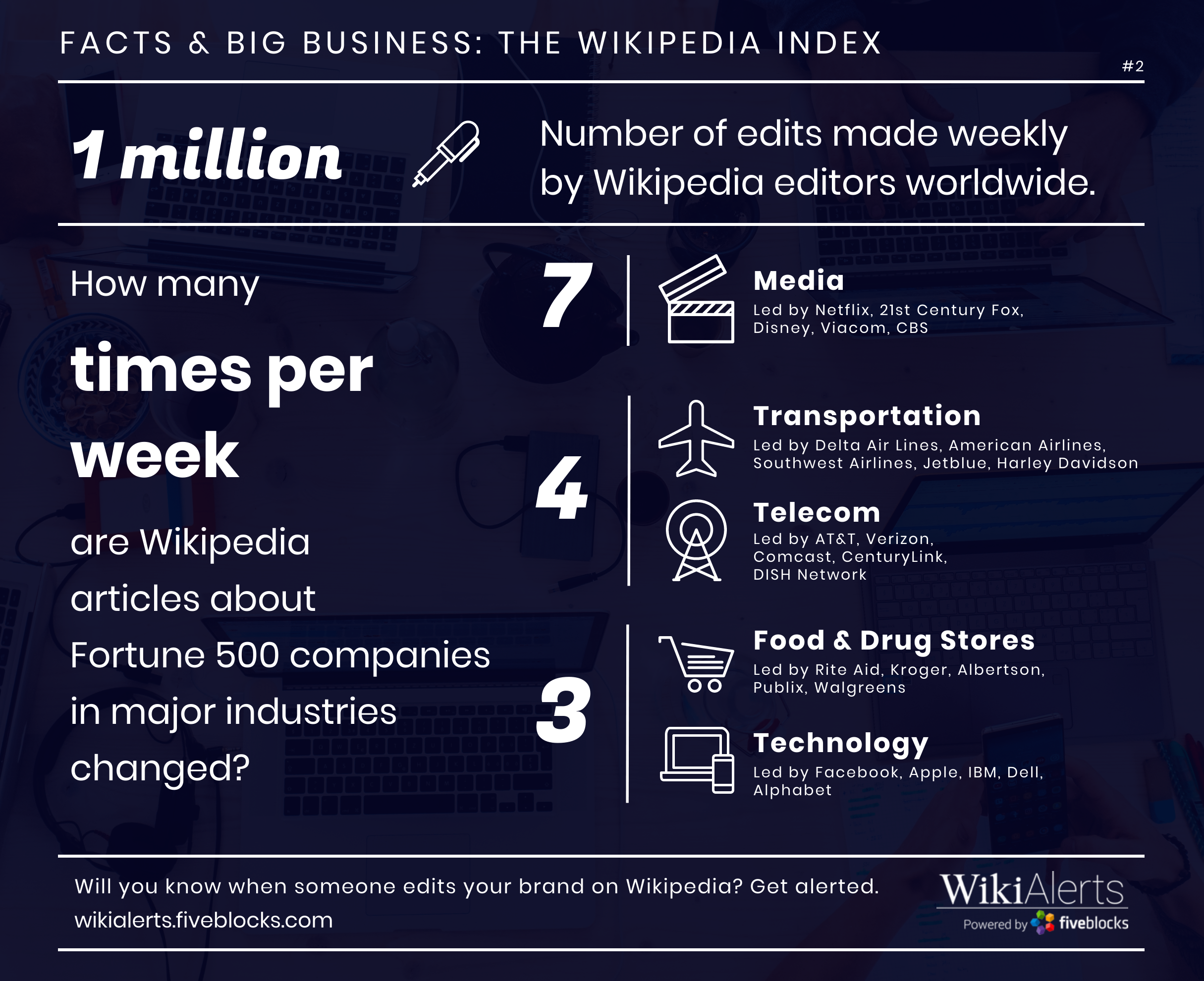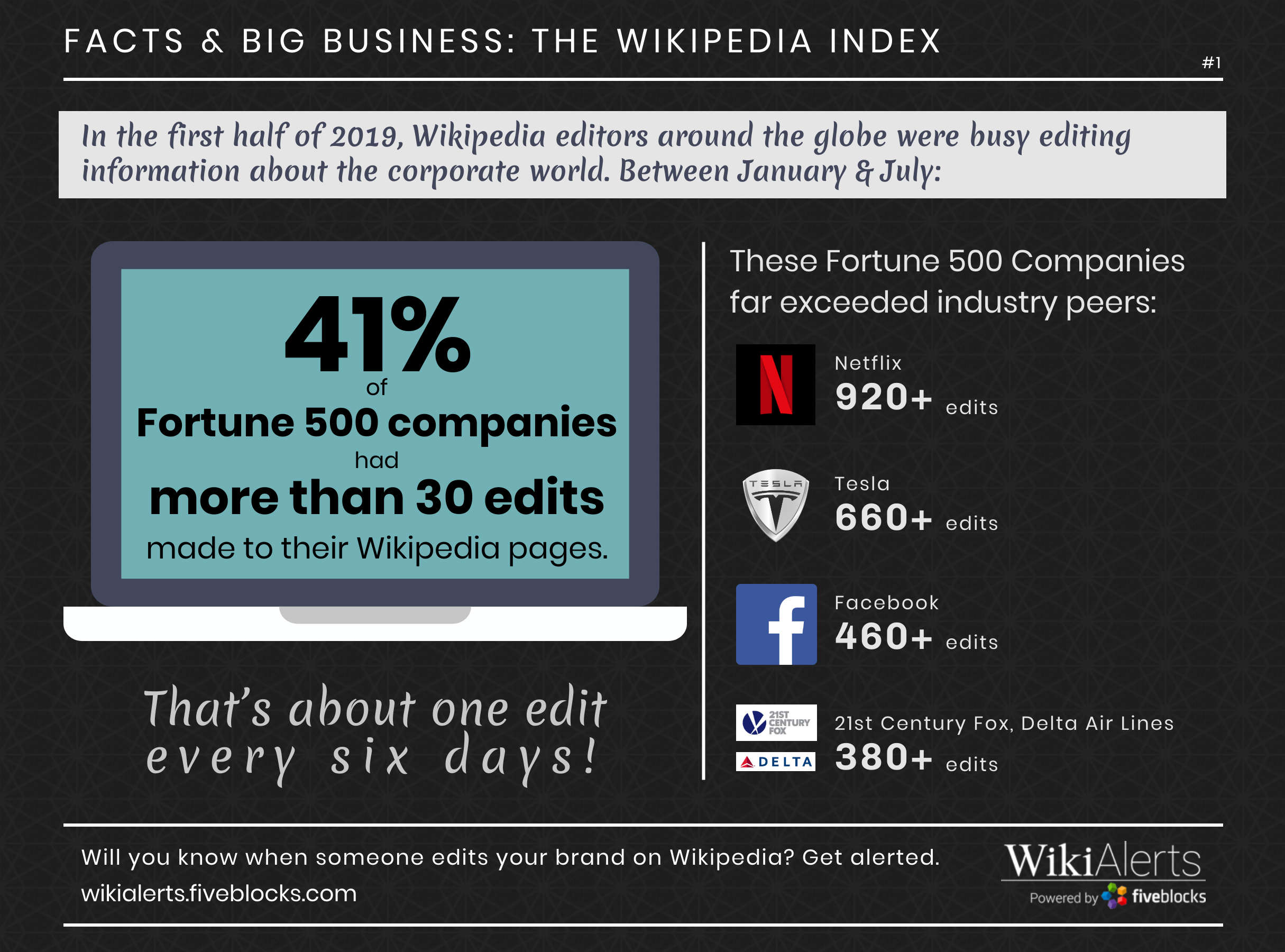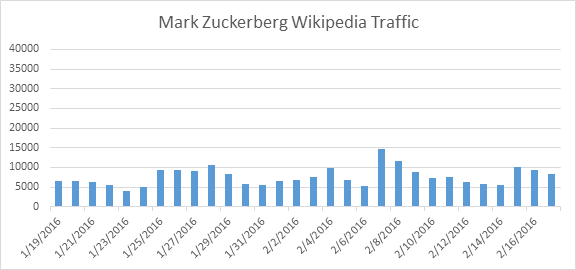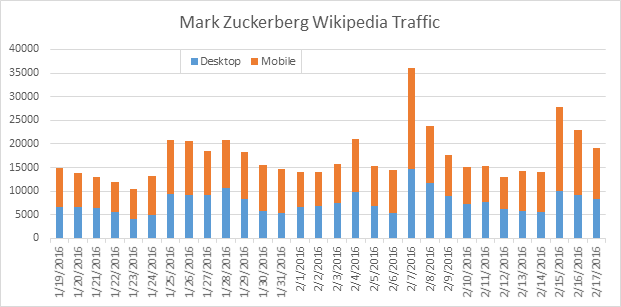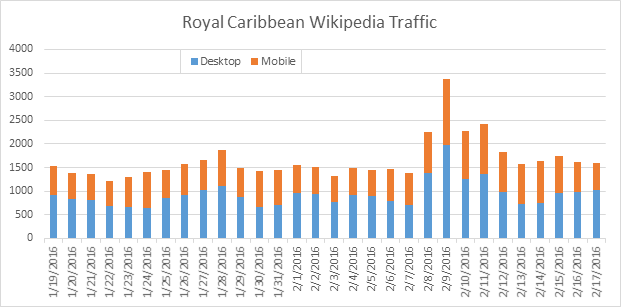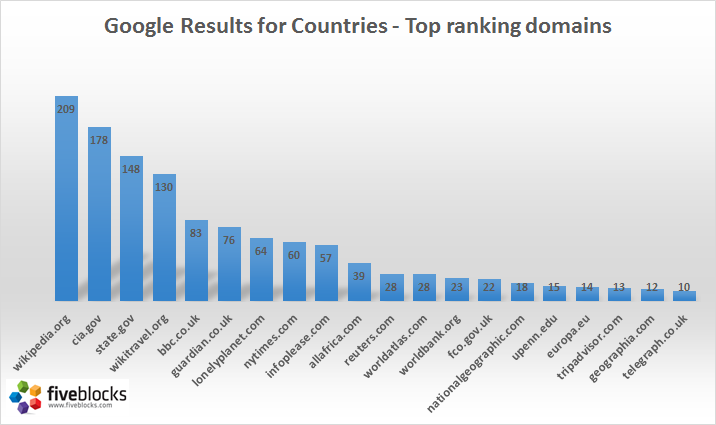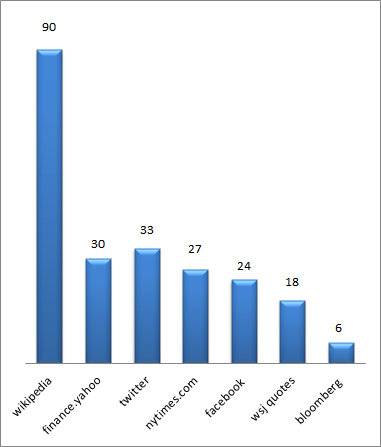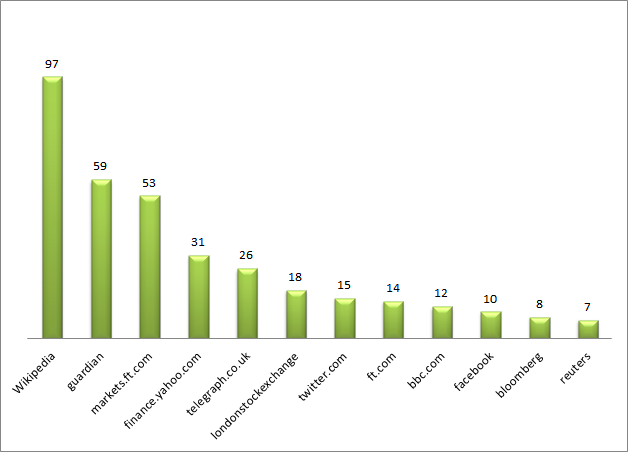The Future of Wikipedia in the Age of AI
As the use of AI models increases, the way users seek information is evolving. Queries are becoming more complex and conversational, and results are typically based on a much larger body of data, rather than a specific source or page.
As these models become increasingly integrated into our daily lives, the importance of Wikipedia in shaping brand reputation cannot be overstated, since it is a major source for training AIs.
Importance of Wikipedia in AI Training
According to The New York Times, “Wikipedia is probably the most important single source in the training of AI models.” The platform’s vast trove of crowdsourced knowledge, covering a wide range of topics, provides invaluable data for AI models to learn from. Without access to this information, the development of current generative AI capabilities might not have even been possible. (Here’s some additional information on how AIs/LLMs/Chatbots are trained.)
Impact on Brand Reputation
With AI models like ChatGPT, Claude AI, and Gemini having been trained on Wikipedia, inaccurate or biased information on the site can lead to negative or incorrect information about a brand, potentially harming its reputation. With so much riding on the underlying information in Wikipedia, ensuring the positivity and accuracy of a brand’s Wikipedia presence has become more important than ever.
Recommendations
Given Wikipedia’s elevated status, our recommendations for companies, brands, and individuals are to work within the Wikipedia guidelines to do the following:
- Maintain: Create and/or maintain a well-structured, robust Wikipedia page for your brand or personal profile.
- Update Accurately: Make sure the page remains updated and accurate with current facts, figures, and noteworthy achievements.
- Include more sources: Since LLMs utilize all of the content, include as many relevant, verifiable sources, as appropriate – these should only help the AI training.
- Go Multilingual: Consider developing a presence across multiple language editions of Wikipedia. LLMs often learn from content in various languages, and the more you play an active role, the better. Also, consider that English is often the hardest language version of Wikipedia to impact, and other language versions can be very easy to edit.
- Other Wiki pages: LLMs can learn about your brand and industry from any Wikipedia article, so consider getting relevant information added to relevant industry articles, not just the ones about your brand.
- Talk Pages: Leverage Wikipedia’s “Talk” pages to include additional relevant information, as LLMs may also use these for training.
- Images: Consider submitting relevant images via Wikimedia Commons to enhance your Wikipedia page and improve AI model understanding.
- Categorize: Utilize Wikipedia’s category system to ensure your page is properly categorized and connected to the ideal topics.
- Monitor: Monitor your Wikipedia presence for edits that may introduce inaccuracies, outdated information, or bias; address issues appropriately and promptly. Do the same for other relevant pages related to your company or brand. Our free WikiAlerts service provides tracking of Wikipedia and Talk pages.
- Wikidata: Beyond Wikipedia, leverage Wikidata, Wikipedia’s sister project, a powerful database of community-contributed structured data that LLMs will increasingly use to verify facts.
Do We Even Need Wikipedia in a World of AI?
An interesting question that has been raised recently is whether there is even a need for Wikipedia. Since the content is taken from various third-party sources, and the LLMs presumably have access to the sources and probably many more, why can’t an AI produce Wikipedia content that would be as good or better than content created by Wikipedia editors?
To answer this question there have been various attempts to utilize AI to write sections of Wikipedia pages, but so far, despite the great capabilities of AI, they have not been proven to produce content that is up to par. It is possible that this will change at some time in the future, but for now there still seems to be tremendous benefit derived from the human (crowdsourced) process that helps create a Wikipedia page. Perhaps AIs that are trained on this process will eventually produce content that is recognized to be of high enough quality.
Conclusion
Ongoing tracking of how AI models represent your brand, and what role Wikipedia may be playing, can help you identify areas for improvement within Wikipedia and beyond.
As the use of Wikipedia in AI training continues to grow, we believe that the future of brand reputation management will be even more closely tied to Wikipedia. By actively managing their Wikipedia presence, companies can ensure that AI models have access to an important trusted source of accurate and up-to-date information, ultimately leading to a more positive online reputation.
Five Blocks specializes in digital reputation management for platforms including Google and Wikipedia, combining cutting-edge technology and personalized service to help our clients overcome digital reputation challenges. Our advanced data analysis and AI-powered insights allow us to identify the root causes of digital reputation issues and uncover overlooked opportunities for improvement. We work closely with your communications team to develop and implement sustainable solutions that deliver long-lasting results.
For more information or to see what we can do with your brand’s data contact us.
Navigating Wikipedia: A Basic Guide for PR Professionals
It happens all the time: We are consulted by PR firms with the question: Why is a certain request for a Wikipedia article consistently rejected by the editor community? One firm told us, in exasperation: “Our client is a noted professional in her field. She has 30,000 followers on social media. She has appeared on television a few times. Her results, for credibility reasons, should surely include Wikipedia. Why is relative fame not enough for Wikipedia? What on earth does it take?”
Great question! Here is our answer.
Wikipedia Land, located at the top of the information stream, is hard to navigate without a map. Many great PR teams get lost there, and could potentially save themselves much time and trouble by better understanding the routes the experts take. (See here for more on editing Wikipedia.)
Here are some notes, compiled from the advice of some of my colleagues, who are experienced trekkers.
- Notability is the gold standard for a page on Wikipedia (see why this is, below.) This is not the same as being well-known. Having a podcast, or appearing as an expert on TV, can sometimes help with Twitter verification; but they are not sufficient for Wikipedia. The theoretical bar for notability in Wikipedia generally amounts to something like: If we were writing a big encyclopedia for a time capsule, this person or entity would need to be included.
- Since this is so hard to prove, the gateway becomes sourcing. Notability on Wikipedia is determined by legitimate sources, as follows:
- Sources need to be independent (i.e.: not the company’s own website, self-published corporate history, or a press release) and from a reputable, non-tabloid-type source (eg: The Wall Street Journal works great, but The Daily Mail won’t fly.) You generally need three or more of these to help you to get over the notability hump – but there is no exact formula here.
- The sources you cite need to be largely ABOUT the individual or company in question. Sources that mention the entity in passing (e.g. your client is mentioned in a list of top twenty women in education) will generally not do the trick.
- Wikipedia doesn’t accept content that is generated or spoken by the subject of the article for most purposes. However – there are exceptions to this rule, namely, uncontroversial, easily provable statements that the subject makes about themselves (e.g. “Born and raised in Topeka, Kansas.”). Interviews are often not regarded as a good source for most claims, unless the journalist makes independent observations that support the assertion made in the Wiki article.
- On a related note, there is a separate issue of verifiability: The sources you use should expressly support the claims you make on the page as everything written on the page needs to be backed up by legitimate sources. For example, if you are a well-known pediatrician, and are extensively quoted in articles about a nutritional health crisis, these sources would still not be useful to support a statement such as “Dr. X is 55 years old and a graduate of Duke Medical School,” unless this is mentioned in the article. In other words, the source must support the information you want to present in a direct way.
PR teams working to secure press for clients obviously have several goals in mind, but if getting clients to the point of Wikipedia notability is one of these goals, aim for multiple, independent sources that are reliable; intellectually independent of each other; independent of the subject; largely about the subject of the article; and which speak to the statement made (or which the client wishes to make) on the Wikipedia page.
So, for an archaeologist, an article in the New York Times about their innovative method of determining the age of artifacts would ideally be complemented by a trade journal article talking about recent discoveries, and a career highlights profile in a local magazine from their proud hometown, which would cover some biographical facts they wish to have on the page.
By the way, we know many people have flouted these rules in the past! But editors will eventually catch up to those old pages that went up in a shoddy way, and they can get flagged and suddenly taken down. Don’t look at Wikipedia articles created a decade ago and ask why that person got away with less; it is a brave new world, and these rules are much more strictly enforced now.
A few more notes:
- Language on Wikipedia can never be promotional or sound like it was written by a marketing team. A company can be an “industry leader” if that is borne out by a source, but “America’s best-loved brand” type-language would not pass muster. A company’s mission statement belongs in a section describing its marketing efforts.
- Images need to be copyright free – since the rules of Wikipedia state that anyone surfing the internet can use the image. It is essential that whoever holds the copyright has released their rights to compensation for re-use on Wikipedia and elsewhere on the internet. (There are different types of licenses with different limitations and requirements, for instance, to mention the photographer’s name, or to not be able to change the photo in some way, but the crux of the matter is giving up the main copyright for compensation in order to reuse.) There are exceptions to this, most importantly regarding logos. A company’s logo can be used in a Wikipedia article without the company relinquishing copyright. This is justified based on a fair use rationale – the company still owns the copyright, but the logo may be used on Wikipedia anyway.
If you find yourself challenged by these rules, you are not alone. Even future Nobel Prize winners are not spared this indignity! We explored the notability guidelines, and their sometimes curious effect of barring truly notable individuals from the door, in this article about the physicist Donna Strickland.
Of course, if you are having trouble traversing this strange landscape, you can always turn to us, your trusty guides, for advice and direction.
Editing the Wikipedia Article about You or Your Company
LAST UPDATED – December 2022
One of the most popular questions we get regarding Wikipedia is whether a company can edit its own page. The short answer is – not really.
You see, the purpose of Wikipedia is to provide an encyclopedia of impartial knowledge. Content that is promotional, self–serving, or biased will often get flagged or removed by other editors..
Wikipedia’s official policy is:
“You are discouraged from writing articles about yourself or organizations (including their campaigns, clients, products and services) in which you hold a vested interest.”
In short, editing the Wikipedia page about your own company is usually discouraged, as Wikipedia wants to ensure its content is unbiased.
It’s also worth noting that the editing guidelines for Wikipedia are far more intricate than they may appear; the sources, writing style, and editor interaction are difficult to manage without signfiicant experience on the platform.
Important to keep in mind:
- Wikipedia editors frown upon and even penalize pages that appear to have been edited by the company without being transparent.
- Your IP Address will be recorded and can be seen by others. So never try to be anonymous while using a company-owned IP address.
- The Wikipedia editor community often track changes. Your edits can potentially trigger alerts for engaged editors. And they may act swiftly against your edits.
Before making a decision we recommend consulting with a Wikipedia expert to weigh options.
We offer Free Consultation and help in determining your options regarding Creation or Editing of Wikipedia pages.
We have helped many companies and individuals navigate Wikipedia and would be happy to discuss your options.
Do you need help editing your company or personal Wikipedia page?
A few words about how we work with Wikipedia editors:
- Help in determining notability – if you or your company are not yet seen as notable entities – perhaps there are steps you can take to get there?
- Create and submit factual content that may have been missed or under-emphasized by Wikipedia editors. We also suggest corrections for mistakes and vandalism.
- Consult with Wikipedia editors to ensure that proposed edits meet the terms of service and appropriately represent client interests.
- Work with Wikipedia and carefully consider timing. Introducing a Wikipedia page in advance of a crisis may be a good idea, while doing so in the middle of crisis could backfire.
Free Consultation regarding your brand’s Wikipedia challenge: Contact Us
Still have questions? See our FAQ
|
How do you edit an error on My Company’s Wikipedia page? While anyone can edit Wikipedia, editors are suspicious of articles that appear to contain conflict of interest (self-serving) edits. Here’s how we recommend getting essential changes made. How do you create a Wikipedia page? Wikipedia has strict standards for notability (who deserves a page), citations (proving facts with sources), and conflict of interest (impartial information), and many pages get challenged. It is therefore wise to consult with professionals. Can you edit your own Wikipedia page? The goal of the Wikipedia project is to be a comprehensive source for objective information, and editors are highly suspicious of articles that appear self-serving. Here’s how we recommend you go about getting edits made. Who can edit a Wikipedia page? Any edits to Wikipedia articles which add false, insulting, or inflammatory information or language in a deliberate manner are vandalism. If your page has been vandalized, read here about what you can do. Can I see who edited a Wikipedia page? To find editor names, go to the ‘View History’ tab at the top right of the Wikipedia page. The name of the editor appears next to each change, right after the date. Click on that name, and you will find out anything the editor has chosen to share with the public. |
Why Your Wikipedia Edits Keep Getting Reverted
If you have made the decision to get involved in Wikipedia, you may find the editorial environment confusing, overwhelming, and sometimes even hostile. Even though Wikipedia encourages editors to be bold, there can be real tension when changes are perceived as out of line, controversial, or otherwise problematic. Changes made by novice editors are often reverted.
Please note that editing a Wikipedia article about yourself or your company is prohibited without disclosing conflict of interest.
Five Blocks offers Free Consultation and help in determining your options regarding Creation or Editing of Wikipedia pages. Contact Us.
The following recommendations are for objective, volunteer editors who are not being paid or swayed to edit in any way. A basic understanding of these common editing snags can streamline the process of contributing to Wikipedia, and make it easier for you to expand the encyclopedia’s content in constructive ways.
- You’re not signed in — Wikipedia has two primary editing channels: registered and unregistered (or IP) editing. If you don’t create an account, your changes will be attributed to the IP address of the computer you are using to make the edits. For all sorts of reasons, Wikipedia editors prefer “interacting” with registered editors as opposed to IP addresses. Extensive editing done without logging in is often viewed suspiciously. The editing community is less trusting of IP edits and is, therefore, more likely to revert sizable edits made in this way.
- You didn’t include citations — Wikipedia wants readers to know where the information is coming from. Assertions made in a Wikipedia article should be backed up by independent, reliable sources. Reliable sources are defined as those with a good reputation and a solid editorial process. Blogs, tabloid journalism, and sponsored content are not to be used. Peer-reviewed industry journals can be used where appropriate. This policy is scrupulously enforced.
- You’re citing original research and primary sources — As an extension of the previous item, information can only be included in Wikipedia if it has been published in reliable sources. Research that has not gone through the peer-review process of academic and scholarly journals should not be cited in the encyclopedia. Articles and publications written by the subject of the Wikipedia article should not be used in most cases. Information published by the subject’s employer is also considered “primary sourcing” and could flag your edits for reversion.
- Your subject isn’t notable — Not every person, company, or concept is considered worthy of a Wikipedia article. Even though someone may seem very important to you, it does not necessarily mean they meet Wikipedia’s standards of notability. We wrote about this here and here.
- You’re repeating edits — Known as edit warring, the re-insertion of content that has already been removed is unacceptable on Wikipedia. If an edit you made is reverted, look at the reasons given. An article’s talk page is the right place to start a discussion about the content you’d like to add, particularly if you are finding that it keeps getting reverted.
- You are inserting radical, extreme, and/or fringe theories — Wikipedia strives to present a neutral point of view and a balanced demonstration of the facts. It is not a platform for inclusion of every theory, hypothesis, or premise. While these notions might be mentioned in a particular article, they will not be given equal weight compared to mainstream views. Wikipedia articles will always strive to reflect the scientific consensus.
- You seem too close to the subject — If you have a financial connection to the subject of an article, Wikipedia requires that you declare your conflict of interest. For the most part, editors with a conflict of interest are encouraged to avoid editing a page directly, and instead to use the talk page to suggest changes and raise issues.
- Your edits cause harm- Your edit might be reverted if it is considered disruptive or malicious, changes that Wikipedia considers vandalism. Repeated sabotage of a page will either get your account blocked from editing, the page protected (meaning it can only be edited by a small group of Wikipedia editors), or both.
As Wikipedia continues to maintain a powerful position in the current landscape of accessible information and data consumption, it needs editors—just like you—to work diligently, effectively, and efficiently to ensure the quality and neutrality of the articles. From hobbyists to subject experts, Wikipedia needs and wants people like you. Wikipedia thrives because of its community of editors—the volunteers who are committed to fixing mistakes, adding stellar content, and improving the platform for readers.
Do you need help editing your company or personal Wikipedia page?
Contact Us for a free consultation.
FAQ
Why did my Wikipedia edit get removed?
Any changes that are unsourced; supported by unreliable sources; malicious; biased; or considered harmful in any way, will be reverted. Edits made by editors appearing to have a conflict of interest will also be flagged or deleted.
Do I need to be an editor to edit Wikipedia?
Anyone can edit Wikipedia, even without a registered account. The Wikipedia community prefers to “interface” with registered editors. If you choose to edit without signing in, your changes will be attributed to the IP address of the computer you are using.
How can I change information on my own Wikipedia entry?
The goal of the Wikipedia project is to be an encyclopedic source of objective information. Articles that are promotional, self-serving, or bias are at-risk of being tagged or deleted. These are our recommendations for making changes on your own page.
How do I know who edited a Wikipedia page?
All changes to a Wikipedia entry are logged. You can see this log by going to the ‘View History’ tab at the top right of the Wikipedia article. The date, time, and size of each change is listed next to the name of the editor who made it. Clicking on the editor’s name will take you to their ‘user page’ where you can read more about the editor.
Does everything on Wikipedia need to be sourced?
Information included on Wikipedia needs to be backed by independent, reliable sources. If you want to add content, it needs to have been picked up by media outlets with a good reputation and an editorial process.
Who can have a Wikipedia article?
Wikipedia has standards of notability which determine a subject’s eligibility for inclusion. Read this article to learn more about the criteria for getting a Wikipedia article.
Wikipedia: True or False?
Wikipedia likes to assert that all information included in an article is put up by voluntary, neutral editors who use sufficient secondary sources to back up statements. There is vigilant enforcement. Still, many thousands of people ask Google each day: How reliable is Wikipedia? Is the information on Wikipedia true?
The short answer is: Yes! The citations (little numbers/links included in the articles) lead to quality secondary sources. Presumably, the more references an article has, the more truthful the article.
Wikipedia ranks prominently because it has characteristics of an authority site (like Bloomberg or the New York Times) and also has characteristics of a crowd-sourced resource. It has the advantage of having real people fact-check and contribute, and when that process goes well, the result can be more authoritative to users even than a recognized news publication. Unlike major media, Wikipedia is meant to be safe from political leanings or editorial positions.
But, the long answer is: It’s complicated.
In February 2020, South African fast bowler Dale Steyn turned to Twitter for help when he discovered that his Wikipedia entry falsely stated he played for Zimbabwe.
His followers made a variety of suggestions/offers to “fix the problem” themselves. What most of them failed to suggest in their tweets, however, was the need for reliable sources to back up the claim that this sportsman did in fact play for South Africa and not Zimbabwe. Some of these well-intentioned advisors did indicate that the edit couldn’t be made by Steyn himself. Read more on that here.
True Tales of Wiki Woes
In January 2019, British actress Olivia Colman shared her story of trying to get her birthday corrected on Wikipedia. She was dismayed that the wiki-indicated day, month, and year were all wrong (making her eight years older than she really was.) All she wanted to do was correct wrong information. But her attempts to get the right date on her Wikipedia entry were met with retorts from wiki editors asking her to “prove it.” Colman pointed out that no citations were used to assert the false birthday and thus her avowal of the correct date should be enough. The Wikipedians ultimately reached a consensus and her actual birthday was included in the entry.
In 2012, award winning author Phillip Roth found factual errors in an entry about his own book, The Human Stain. He—the author himself—was pressed to attest to the veracity of these inaccuracies in the form of secondary sources. So Roth, being an esteemed writer, created the source himself. He wrote an article about his book, and his Wikipedia experience, and had it published in The New Yorker. Then it was legitimately used by an editor as the cited source to correct the misinformation.
On March 14, 2007, Sinbad’s Wikipedia page claimed he had died. Major news outlets reported the death; his manager received condolence calls; Sinbad himself was informed of his own passing when his daughter called his cell phone. Even after several interviews with leading radio and television stations in which he asserted himself as “alive and well,” Wikipedia insisted that the edit could only be reverted if it could be confirmed by a link-able secondary source. Eventually, the editors recognized the vandalism and reverted the falsehoods, but not before it became the subject of some of Sinbad’s stand-up routine.
There are countless more examples, but you get the idea…
The Fight for “Truthiness”
In May 1897, Mark Twain told a journalist, “the reports of my death are greatly exaggerated.” It is probable that had he encountered this problem sometime after 2001, when Wikipedia came to be, he too would have had to find reliable secondary sources by which to prove his own well-being.
Wikipedia’s verification policies are designed to ensure that all the information found on the open-source, cooperative platform is in fact true. By relying on secondary sources, Wikipedia presumes that sufficient research has been done to achieve a relatively high level of accuracy. Wikipedia even maintains a list of approved and deprecated sources designed to ensure the veracity of reported information.
But these same policies also create a loophole through which some falsehoods can trickle in, if these distortions were once reported as truths (as in the case of Roth and Sinbad). Similarly, the loophole allows for extra savvy Wikipedia consumers, like Phillip Roth, to produce a source designed specifically to counter the misrepresentation and set the record straight.
With sites in 300 different languages, over 40 million articles, and more than 200,000 editors/contributors, accessed by more than 1.4 billion unique devices (mobile and desktop) each month, there’s a lot of information out there in the Wiki-verse.
Some of that data we all know to be true, yet the “truthiness” of certain information seems somehow more reliable when we read it on Wikipedia. The term itself — coined by Stephen Colbert, and awarded “Word of the Year” in 2005 and 2006 — has its own Wikipedia entry, which has to be enough to make it an officially recognized (and acceptable) word in the English language.
All in all, while the Wikipedia system certainly has flaws, it is probably the best one there is, and we have found that it is better to work with the system than against it.
Your Wikipedia Article Is Up For Deletion. What Do You Do?
Your company or your CEO has a Wikipedia article. Suddenly, you notice a tag on the top of the article screaming that the article is about to be deleted. What happened? Why is the article being deleted? Will it actually be deleted? And what, if anything, can you do about it?
Why Would Your Article Be Deleted?
Before we discuss how the deletion process works, it makes sense to explain briefly why your article might be considered for deletion. There are straightforward reasons for this, including copyright violations, vandalism, a lack of sources, and obvious advertising.
There are more nuanced reasons as well, the most relevant of which is the question of notability. Not every topic belongs on Wikipedia, and Wikipedia has specific guidelines about what makes a person or company notable. For a topic to be notable, it needs to have significant coverage in reliable sources that are independent of the subject. There are other specific criteria as well, all of which are explained on Wikipedia.
The Deletion Process
If you use WikiAlerts, or you carefully monitor pages that interest you in another way, you will be alerted as soon as someone tags your article for deletion.
Wikipedia editors may go about the deletion process in one of three ways:
- Speedy deletion: A speedy deletion is proposed by an editor when they believe that the article so clearly does not belong on Wikipedia that a full discussion is unnecessary. There is a long list of criteria that would warrant a speedy deletion. The most relevant for our purposes include: copyright infringement, unambiguous advertising or promotion, and the recreation of a page that was already deleted through a deletion discussion. The person nominating it for speedy deletion will specify the reason in the deletion summary and can immediately delete the page. They don’t need to wait for any discussion or agreement. Boom, it’s just gone.
- Proposed Deletion: If an article doesn’t meet the very narrow criteria for speedy deletion, but an editor feels that it should be deleted and that it won’t be controversial to do so, they can propose it for deletion. This is a gentle deletion tag, because any editor can remove the tag if they have justification for saving the page. If the tag remains for seven days, the page can be deleted.
- Articles for Deletion (AfD): When an editor feels that deletion is appropriate, but that a discussion should take place about the topic, they will engage in the deletion discussion process. The editor will nominate it for deletion with the AfD tag and create a new page where the discussion will take place. Other users who monitor AfD discussions will be notified that this conversation is taking place. Typically, a deletion discussion lasts for seven full days and consensus is NOT based on a tally of votes, but on consideration of reasonable, policy-based arguments.
At decision time, a Wikipedia administrator who has not participated in the conversation will access the arguments and decide that consensus was reached to delete the page, that consensus was reached to keep the page, or that consensus wasn’t clear. If it wasn’t clear, the page may be relisted to generate more conversation, or a decision of No Consensus can be decided and the article kept.
So Now: What Can You Do?
The preferred way to deal with the issue of deletion is to avoid it in the first place. As we all know, an ounce of prevention is worth a pound of cure. It’s always best to prevent this situation from occurring by making sure there are many good media sources about your brand. Before a Wikipedia article gets written about your company or CEO, make sure that there is extensive, impartial online coverage.
But what if you have not avoided it, and now you stand at the brink of deletion?
- DO NOT create an editor and jump into the conversation if you have a conflict of interest. Wikipedia has very strict guidelines about getting involved in creating, editing, or defending any articles that you have any connection to without declaring that connection.
- You DO have the option of creating a COI editor and going onto the talk page to suggest additional references or content that might help other editors to add to the Wikipedia page and the conversation.
- In addition, you can actually join the AfD (Articles for Deletion) conversation as a COI editor and make a strong argument for the inclusion of your piece (as a declared COI editor), but you will not be allowed to vote on behalf of your article.
It Ain’t Over ‘Till It’s Over
If the article ends up being deleted, don’t despair. It’s possible that sometime in the future the company or individual will become notable enough for inclusion in Wikipedia. In these situations, the focus should be on strengthening your website, Facebook, LinkedIn and other online properties to tell your story the best way you can even without Wikipedia. If you believe, however, that you really are Wiki-worthy now, then you should focus on getting more reliable, third-party, independent coverage online. That’s the way toward proving your notability, which is the high road to Wikipedia.
The Wikipedia Index: The Edits that Matter
We’ve noted before how important a Wikipedia page is: 98% of Fortune 500 companies have their Wikipedia page ranking in their first page of Google results. Previously (here and here), we examined the sheer volume of edits made to Fortune 500 companies’ Wikipedia pages.
But what is the nature of these edits? What kinds of changes are being made by Wikipedia’s many editors, and which ones should you care about most?
It turns out that the vast majority of all edits to Fortune 500 company pages are just one of four types – text, infobox, links, and references. Text and infobox changes are the most crucial.
Edits to text include changes, additions, and deletions of any text in the body of the article. This content is obviously what readers come to a Wikipedia page to see; what many don’t realize is that it’s also where Google pulls pieces of its search results.
Therefore, changes to text on a Wikipedia page often become incorporated into both the search page results and the knowledge panel (Google’s data summary box on the right side of the page).
In some cases, this happens as soon as an edit is made, creating an opportunity for vandalized text in Wikipedia to show directly in Google. We wrote about that here.
Another key component of a Wikipedia article for a company is the infobox. This is the box on the right side of a Wikipedia article that gives a synopsis of key points about the company. Critically, Google often pulls points directly from the infobox into its own knowledge panel.
Don’t Panic, But Do Pay Attention
Google and Wikipedia are two of the most visited websites in the world. When people search Google for information about a person or company, their answer on Google’s search results page often comes directly from Wikipedia.
Whether a company’s page is edited with malicious intent – vandalized – or simply updated with incorrect information, the strong connection between Google and Wikipedia means that edits within Wikipedia have ramifications for a company beyond just Wikipedia.
When someone edits the body of a Wikipedia article, that change may be picked up by Google right away, or it can take a few days. This sometimes allows other editors to undo or remove vandalized text before it ever makes it to Google. However, when an edit is in the first sentence of the Wikipedia article, Google picks up the change immediately, making such edits highly risky for the company or person. This can be the case also for edits made to the infobox.
Companies, brands, and individuals with a Wikipedia article about them need to be vigilant about continuously monitoring their Wikipedia pages for any edits. That way, they can be on top of any changes to these pages that don’t convey an accurate picture and, most importantly, take steps to remove these changes when necessary.
Trash Talk in the Edit Field: The Vandalism Wars
For real sports fan trolling, center court is Wikipedia.
Sporting events in the 21st century are played both on and off the field.
As highly paid athletes compete for fame and glory on televised fields and courts the world-over, an alternate set of teams compete in the shadows.
Fighting it out across cyberspace, on social media platforms, are the fans who mainly exercise their fingers.
The victorious show no mercy to the vanquished. They make memes mocking fumbles and celebrating touchdowns. What’s the point of your team winning if you can’t rub it into the face of those crushed and humiliated in defeat?
A surprising venue for this testosterone-driven trashing of players, umpires, and coaches: geeky Wikipedia.
Wikipedia, trusted as an authoritative source by most of the 1.6 billion people who use it monthly, has become a rather likely spot for good old hooliganism. Appearing at the top of page 1 in search results for many terms, yet editable by anyone, it is a most appealing target for vandalism: People will see what you scrawl.
However, there is a lesser-known, but more significant, consequence of vandalizing a Wikipedia page.
Vandals change Google.
Here’s a story.
Recently, the Patriots were crushing arch-rival NY Jets, and fans were looking for cyber blood.
And it was then that Patriots fan Pvega789 made his move. He logged onto the Jets’ Wikipedia page, and changed the lead sentence of the page to read:
“The New York Jets are a professional American football team based in the New York metropolitan area and owned by Tom Brady and the Patriots’ Defense.”
(Get it? “Owned?”)
Unknowingly, editor Pvega789 was also altering Page 1 of Google search results.
The Knowledge Panel that appears on the top right of Page 1 for a search usually takes its text directly from the opening sentence/s of a Wikipedia Page.
As Pvega789 saved his edit, Google updated the Knowledge Panel for the Jets virtually instantaneously, quoting the first sentence from Wikipedia verbatim.
As if that weren’t humiliating enough for the Jets, another anonymous editor went in 15 minutes later and corrected what he (or she) described as a “typo.” Now both the entry and Knowledge Panel read:
“The New York Jets are a semi-professional American football team”
Within a minute the vandalism was all reverted by an administrator, who also added protection to the page to temporarily prevent further vandalism. The Knowledge Panel returned to normal.
When the vandal has a sense of humor and the damage is reversed quickly, we can all have a chuckle about it. Like this edit made to a page about a martial arts event.
But what if it’s defamatory, mean, or intentionally malicious?
Vandalism can then have serious consequences, and stain reputations.
Sport isn’t the only arena where Wikipedia vandalism takes place. There are many other examples, to which we will not link here for obvious reasons.
- An ex-student unhappy about their old school
- A customer unimpressed with how a brand treated them
- A former employee disgruntled with their prior workplace
Any of these types of people can go onto Wikipedia with an ax to grind and run the page, at least temporarily, into the ground — and have that reflected in search, if it’s a well-known brand.
If it’s on a dormant page with minimal interest, vandalism can just sit there. Going months, if not years until someone notices it.
How does Wikipedia defend itself against vandals?
Protecting its integrity relies on it being able to identify vandalism quickly.
There are Wikipedia Bots designed with the sole purpose of detecting vandalism and reverting the edits.
There is also a page with a list of recent changes which editors can monitor to see what’s been happening recently.
Frequently vandalized pages can be protected to prevent unauthorized edits.
But this isn’t, as we have seen above, fail-safe. Who has time to monitor a Wikipedia page? Other than the aforementioned sports trolls, probably nobody.
However, there are great tools available to notify you when changes have been made to pages you track.
We will leave the final word to Abraham Lincoln, whose page on Wikipedia is one of the most vandalized of all time. In his Gettysburg Address he said:
“The world will little note, nor long remember what we say here but know that the problem with a Wikipedia page is that you can’t always depend on its accuracy.”
The Wikipedia Index: Edits to the Fortune 500
Wikipedia editors worldwide make 1 million edits every week. How many of these are edits to pages of major companies? Does it vary by industry? We found out for you:
There’s no doubt about it: Monitoring changes to corporate or executive Wikipedia pages is an essential component of reputation management.
The Wikipedia Index: Facts and Big Business
We’ve said it before, but it’s worth saying again: Monitoring changes to corporate or executive Wikipedia pages is an essential component of reputation management.
As we’ve noted previously on this blog, Wikipedia is the 5th most visited website in the world, with 80 million registered users and 200,000 editors. Wikipedia has changed the way we seek out information and determine its accuracy, with two thirds of US adults saying that they sometimes or always trust what they read on Wikipedia, according to our recent research — which also found that half of Fortune 500 CEOs (and 94% of companies) have an entry that ranks on page one of Google for searches of their names. Wikipedia is a key component of online reputation for notable organizations and individuals.
With that in mind, look how frequently major brands have their pages edited by Wikipedia’s many editors:
WikiAlerts™ by Five Blocks facilitates monitoring by sending real-time email alerts when edits are made to tracked Wikipedia pages.
WikiAlerts empowers companies to fight vandalism on Wikipedia
Monitoring changes to corporate or executive Wikipedia pages is an essential component of reputation management. WikiAlerts™ by Five Blocks facilitates monitoring by sending real-time email alerts when edits are made to tracked Wikipedia pages.
First launched as a beta last year, WikiAlerts allows users to navigate the confusing history on Wikipedia pages and to monitor activity, changes, and traffic. This “virtual assistant” to communications staff now has a new “Revert Vandalism” feature in the alert emails that enables users to immediately revert an edit in the event they’ve identified it as malicious or destructive. It’s our way of helping users keep their digital reputation fair and vandalism-free.
Your Own Wikipedia Page: What Does it Take?
On October 2, 2018, in the pre-dawn hours in Ontario, Donna Strickland received a phone call that would change her life. It was Göran Hansson, secretary general of the Royal Swedish Academy of Sciences, calling from Stockholm to inform her that she had won the 2018 Nobel Prize in Physics.
About an hour later, Strickland’s big win was announced to the rest of the world, and the fanfare that ensued went far beyond the usual media blip: Strickland, an associate professor of physics at the University of Waterloo, was only the third woman to win the Nobel Prize in Physics in the award’s history, and the first since 1963.
Along with the plaudits came voices of criticism for an award process that some believe has historically neglected women, and for a society that many feel does not do enough to foster the success of women in the sciences.
But a fascinating secondary story quickly emerged on both social and traditional media, in what The Atlantic called “a Metaphor for the Nobel Prize’s Record With Women.” As it turned out, Donna Strickland did not have her own Wikipedia article at the time of her award’s announcement, despite her many achievements in her field, and her stature as president emeritus of a leading academic society.
Even more gallingly, a Wikipedia editor had drafted an article about Strickland on March 28, 2018 – several months before she won the Nobel Prize – only for the draft submission to be summarily rejected by another Wikipedia editor.
To be sure, once word got out that Strickland was a new Nobel laureate, a Wikipedia article about her was created in a flash, and soon reached a respectable length and level of detail. But media outlets seized on Wikipedia’s initial exclusion of Strickland – despite her many accomplishments – until she won the Nobel Prize in Physics.
The headlines were quick to condemn the website: “Wikipedia rejected an entry on a Nobel Prize winner because she wasn’t famous enough”; “The Nobel prize winning scientist who wasn’t famous enough for Wikipedia”; and “Female Nobel prize winner deemed not important enough for Wikipedia entry.”
But just how accurate were these accusations? Was Donna Strickland truly “not important enough for Wikipedia”? The answer is … not exactly.
To get to the heart of the matter, let’s put aside the thorny topic of gender and systemic biases on Wikipedia and elsewhere, and ask a more basic question: What does it take to get on Wikipedia? Just how famous does a person have to be to deserve an article on the world’s most widely read encyclopedia?
One of Wikipedia’s foundational principles is that Wikipedia is an encyclopedia, not an indiscriminate collection of information, so there needs to be some standard for a person (or any other topic, for that matter) to be judged suitable for inclusion.
The standard that the Wikipedia community implemented as the primary metric for inclusion is actually neither fame nor importance. It is notability. According to Wikipedia’s official notability policy, notable topics are “those that have gained sufficiently significant attention by the world at large and over a period of time.” Fame and importance (not to mention other factors like popularity, talent, and prestige) are deemed too subjective to meet Wikipedia’s inclusion criteria. Notability is where it’s at.
Part of why Wikipedia chose notability as the linchpin of its operation is that it can be demonstrated using references. Most Wikipedia articles must justify their inclusion by meeting the General Notability Guideline, or GNG. Sometimes called Wikipedia’s Golden Rule, the GNG states: “Articles generally require significant coverage in reliable sources that are independent of the topic.” Each part of this sentence represents a critical element of the GNG: “significant coverage” excludes trivial mentions; “reliable sources” excludes biased content and publications with poor editorial oversight; and “independent” excludes content produced by the article’s subject, such as a press release or an autobiography.
Despite Donna Strickland’s importance and stature in her field before she won the Nobel Prize, she clearly did not pass the GNG – there was simply no significant coverage of her or her work in news media or elsewhere! This is unfortunately more typical of important people from previous generations who simply did not appear sufficiently in sources that live online.
Critically, there are also several subject-specific notability guidelines, which serve as a kind of back door to grant inclusion to subjects that may not pass the GNG. For example, the notability guideline for academics dictates that an academic is notable if the person “is or has been an elected member of a highly selective and prestigious scholarly society or association.” In hindsight, many in the Wikipedia community argued that Donna Strickland should not have been rejected by Wikipedia even before winning the Nobel, despite the dearth of media coverage about her at the time, since she is a past president of The Optical Society.
But the fact remains that by Wikipedia’s formal standards – which value notability and media coverage over more subjective factors – Strickland’s case for inclusion was, at best, contentious. As Wikimedia Foundation President Katherine Maher wrote in the aftermath of the Strickland affair, “If journalists, book publishers, scientific researchers, curators, academics, grant-makers and prize-awarding committees don’t recognize the work of women, Wikipedia’s editors have little foundation on which to build.”
As we go forward into the future, our generation’s approach to appreciating women’s achievements will require some serious edits.
Knowledge is Power: Wikipedia Fact Sheet
The 5th most visited website in the world has changed the way we seek out information, and the way we think about knowledge as a collaborative effort. If you are a CEO with a Wikipedia page, that page will likely be the second result on a Google search for your name.
Here’s a 2019 look at Wikipedia:
Wikipedia Page Visits – Have You Measured Your Mobile Visits Lately?
A good way to gauge the popularity of a topic is to look at traffic to that topic’s Wikipedia page. Traffic to the page is a quantifiable measure that is easily understood and easily compared across topics.
This is particularly interesting for a company or famous person. When a CEO says or does something notable or a company experiences a crisis, Wikipedia article traffic reveals a spike in interest.
Each Wikipedia article includes a link to view these traffic statistics, although the link itself is somewhat difficult to find. For this reason, we at Five Blocks bring this valuable data to the forefront and share it with our clients. We include it in our reporting and we feature a graph of this data on our automated monitoring tool.
On January 21, 2016, the Wikipedia traffic statistics page stopped updating. It turned out this was the beginning of a migration to a new Wiki traffic measurement site. By the first week in February, the reporting was back from a new source. It improved on the old source, by allowing for viewing statistics for flexible date ranges. It even allowed a user to slice the data by traffic source (desktop vs. mobile). But that’s when we realized something was off. The traffic numbers from this tool were quite a bit higher than they were on the old one.
A bit of checking revealed the answer: the old tool was only reporting article visits from people using a computer, while the new tool included computer users and those on mobile devices. We were happy to learn that the reporting from the new data source was more comprehensive. But this had significant implications for our reporting until that point. Reporting from the old source actually understated the actual number of visitors to the wiki article.
For example, Mark Zuckerberg’s traffic as reported on the old tool would look like this:
This shows average daily traffic around 7700 visits with a peak on Feb. 7.
But the more complete picture includes mobile traffic as well. It looks like this:
Average daily visits are actually 17,300. And the spike on Feb. 7 is now quite pronounced. (That’s when Zuckerberg wished the world a Happy Lunar New Year in Mandarin and announced his baby daughter’s Chinese name.)
Ignoring the mobile traffic here omits over half the visits to the page, totally under-representing actual interest in Mark Zuckerberg. Note a similar pattern with Royal Caribbean, which experienced its own crisis on Feb. 9 with news of its ship getting damaged in rough seas.
With the new data source only retroactive to August 2015, any historical data (from the old source) will require a big asterisk to remind us that we are not seeing the full picture. While the old data will still be useful to search for trends, patterns, and spikes in Wiki article views, it comes with the important caveat that the numbers themselves fall short of actual traffic. Certainly, new data should not be compared with old data given the different basis for measurement.
Obviously, the proportion of mobile traffic to a Wiki article will vary depending on how relevant that topic is to a mobile audience. But this point is clear: mobile traffic to wiki is significant. And omitting it means a significant under-representation of the popular interest in a topic, particularly during a reputation crisis.
Digital Reputation Management: It’s Not All About Burying Results

I posted the following on Business Insider in response to a post that focused on the underbelly of the Digital Reputation Management industry.
Many companies and individuals who have online reputation issues are not trying to bury negative reviews or articles. Instead, they are working to make sure that people searching for them online find what they are looking for. This need often arises when the brand or individual has not made any effort to create an online presence (think either a minimal website or none at all, no participation in social media, no business profiles, no YouTube channel, etc.)
Take for example a financial services firm which mostly arranges M&A’s. An article on a popular business news website portrays a potential upcoming deal for the company in a negative light – probably due to the author’s view of the industry in which the company is involved. The financial services company isn’t active online. They have a one-page website that does not appear prominently in searches online. Most of the prominent mentions of the firm seen in a Google search contain contact information, SEC documents and occasional mentions on investor portals.
The goal of an online or digital reputation management program for this client (and many like it) is to help the client present their brand appropriately online. There really is no need to subvert any search engine algorithm or bury any results.
The Digital Reputation Management program would consist of elements such as:
- Building out the current website so that it is technically sounds and contains content that will help it rank well in search engines.
- Creating company and individual profiles on sites like: LinkedIn, CrunchBase, and others.
- Working with Wikipedia editors to correct any incorrect information appearing in Wikipedia – including providing sources to editors that they can quote.
- Registering the brand and key individuals on social media websites that may be appropriate to use in the future (Twitter, Google+, etc.).
- Working with the client’s communications team (or their external PR firm) on opportunities for publishing thought leadership materials in one or more relevant media outlets.
In short, there are many tools at the disposal of digital band management professionals that, rather than being exercises in removing negativity, are proper digital branding and communication efforts. Rather than focusing on fooling the algorithm (in the long term Google will beat you!), serious companies should be considering digital reputation management strategies and tactics that take advantage of Google’s algorithm and its ability to detect relevant, authoritative content from a variety of sources.
So, You’re Working on Digital Brand Alignment for a COUNTRY!
We have had opportunities to work with governments, NGO’s and organizations of all types.
Before we can advise a client on the steps they should be taking, we need to understand the context. When working with a country, it is important to ascertain what results are normal for a country.
Clients will usually say something like, “CIA Fact Book?! Why is the entry for CIA Fact Book coming up so high for us? Does Google consider our (banana?) republic a terrorist state?”
To answer these and other questions we start by looking at the expected results for countries.
Below is a chart for Dec 17, 2012 showing the most frequently appearing domains for countries searched in Google. This table considers the first page of Google as seen in the US only. Note that results in any specific location may vary, so that searching in Google.fr (France) would be expected to yield more sites that pertain to that location.
Numbers on the chart indicate the number of countries displaying this domain in their first page Google results.
It is interesting to note that cia.gov and state.gov dominate the results along with the ubiquitous Wikipedia. If you are responsible for the branding of a country, this table serves as some initial context. Any site here that also appears for your country should not be a shock.
One of the surprises for me was a site called infoplease.com (by Pearson Education) which ranks for 57 countries* even though it is of lower quality! I’m actually not sure what to make of it – it may well appear in situations where a country has not done even a basic job of creating or curating web content that can outrank this low quality scraper search site. (*In case you want to dig deeper, the complete list is at the bottom of this post.)
Also – the role of community-generated content for country results should not be underestimated – Wikipedia and Wikitravel each serve as top domain results for most countries. This certainly suggests that ignoring community content would be unwise.
So what’s your strategy?
In general, your goal should be to design the ultimate branding and focus. Perhaps you would prefer results focused more on industry rather than tourism or political news? With that in hand, you’ll develop strategies to achieve these goals.
If you have questions or comments or would like to dig deeper into the data with us – feel free to drop us a line.
*Countries for which infoplease.com ranks in the top page of Google results:
1. Algeria
2. Andorra
3. Angola
4. Argentina
5. Armenia
6. Bahamas
7. Bangladesh
8. Bosnia and Herzegovina
9. Burundi
10. Cambodia
11. Cameroon
12. Cape Verde
13. Chile
14. Colombia
15. Cuba
16. Denmark
17. El Salvador
18. Equatorial Guinea
19. Ethiopia
20. France
21. Gabon
22. Guatemala
23. Guyana
24. Haiti
25. Honduras
26. Hungary
27. Indonesia
28. Italy
29. Kyrgyzstan
30. Laos
31. Lithuania
32. Malawi
33. Malaysia
34. Mali
35. Marshall Islands
36. Micronesia
37. Monaco
38. Mongolia
39. Morocco
40. The Netherlands
41. Nicaragua
42. Nigeria
43. Papua New Guinea
44. Peru
45. Poland
46. Portugal
47. Romania
48. São Tomé and Príncipe
49. Senegal
50. Spain
51. Uganda
52. Ukraine
53. United Kingdom
54. Uruguay
55. Uzbekistan
56. Venezuela
57. Yemen
Brand Reputation for the FTSE 100 vs. the Fortune 100
Before we can start work aligning a brand’s online reputation to match their corporate objectives, we need to understand something about the playing field.
We need to understand what types of results are typical for brands in the same market. Many of our clients are Fortune 100 and Fortune 500 companies, so we have done extensive research into this market.
Below is a table depicting the frequency with which we find various sites as top ten results in Google’s natural search results. (Data is from Nov 9, 2012).
The number above each bar represents the number of company search results in which each website appears.
As you can see from this chart, the most prevalent result for companies in the Fortune 100 is Wikipedia – appearing in 90% of page one results for Fortune 100 companies.
It’s interesting to note that Facebook and Twitter are each appearing in F100 first page Google results about 25% of the time.
Also interesting is that Yahoo Finance continues to be an important finance site as compared to Google Finance – which does not show up in the top ten.
A takeaway for companies in the space would be to look at the frequently occurring websites and determine if your brand should also have similar results. Knowing that Google tends to “like” showing a specific type of result seems to make it low-hanging fruit – an easy win if it’s something that will help your online reputation.
What about the FTSE 100?
In preparation for a week of meetings in London, we decided to compare the same type of data as seen in Google.co.uk results for the FTSE 100.
In the UK, Wikipedia is even more prevalent. Only 3 FTSE 100 companies have no Wikipedia page appearing in their Google page 1 results! Also noteworthy is the strength of The Guardian as a result shown in the first page Google results for 59% of all FTSE 100 companies! (Note to PR department – The Guardian is more likely to impact online reputation than the BBC, The Telegraph and Reuters combined!). In the UK Markets.ft.com outranks Yahoo Finance in prevalence by a significant margin, with Yahoo Finance still maintaining a significant foothold.
On the social media front, Twitter and Facebook are less than half as likely to be in the Google first page search results for a FTSE 100 company – as compared to a Fortune 100 company.
Notable as well is that neither group has video results coming up with any frequency. Image results show up in 6 of the FTSE 100 search results, but in only 2 of the Fortune 100 first page results.
With this knowledge, we are better prepared to look at FTSE 100 companies – and indeed at company results for other companies in the UK with a better understanding of which sites play significant roles in online reputation. When we approach a client program, we then take the additional step of doing a more exact comparison of the peer group – the companies or individuals that are most similar to the client. This offers further insight as to the way in which Google treats those keywords within the local search market.

